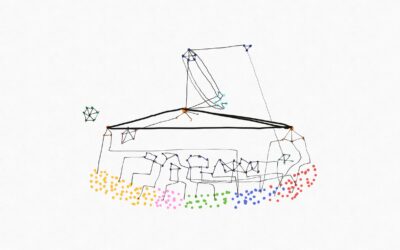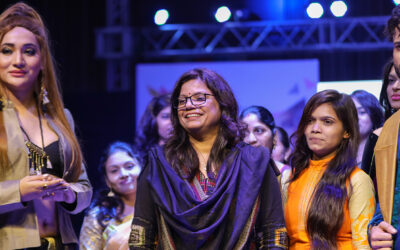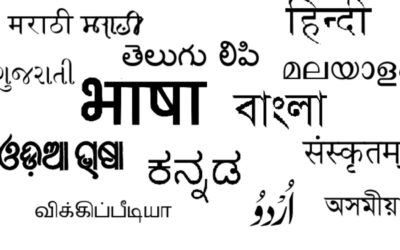A long line of women, carrying their babies in slings across their chests, balancing eggs and channa on their heads, is a common sight as we travel in our jeep at Swasthya Swaraj from our head office in Bhawanipatna to the villages. Children are always tied close to their mother’s chest so that anytime they are hungry, the mother can feed them without any hassle.
On my first visit to the Kaniguma clinic, I volunteered to help the nurses measure the infants’ height, weight, and MUAC (mid-upper arm circumference) details. As soon as we took the first child away from their mother and placed them on the weighing machine, the baby started to wail. After a lot of struggle, we managed to take the measurements. As soon as we were done, the mother took the baby in her arms, and they stopped crying. She instantaneously opened up her blouse and fed the child without any hesitation.
Half of her breast was visible, so I ran to cover her up as there were men in the waiting hall. The same incident happened with more than three women and then it dawned on me: nobody else was running to cover up breastfeeding mothers. In fact, no one else in the room, including men, never even bothered to look at these mothers feeding their babies. My instinct was stemming from my social conditioning.

A few years ago, I remember seeing the picture of a woman breastfeeding a child on the cover page of a Malayalam magazine, ‘Grihalakshmi’. It carried the headline: “Don’t stare; we have to breastfeed”. That particular issue spoke about the taboos around breastfeeding, elaborating on the associated problems women face. The cover page evoked a lot of debate, outrage as well as appreciation on social media. Reading those articles with my friends, I remember feeling angry and disappointed at everyone who would stare or pass comments at a breastfeeding mother. It was only natural for a mother to feed her child when it is hungry, and there was absolutely no need to hide it.
After one month of working in the tribal villages of Odisha, my understanding of myself regarding public breastfeeding was shattered. It was evident that my support was only superficial; if anyone would do it before me, I would feel uncomfortable and maybe even react like those people whom I felt angry and disappointed at.
On any given day, breastfeeding mothers are a common sight in our clinics. I began to wonder if I ever saw breastfeeding mothers this frequently in cities, despite their dense population as compared to villages. Even in my close circles, breastfeeding in public was never the norm. It was always done in the bathroom, in the car, in the backyard, in the bedrooms where no one (primarily boys and men) would be allowed to enter.
I have been in conversations with the doctors here to understand breastfeeding better and I was told that a mother’s breast milk has numerous developmental, nutritional and general health benefits for a baby. Human milk is best suited for the baby’s optimal growth, enhances the baby’s immune system; it is more easily digestible for infants, and hence leads to healthy bowel movements. Breastfeeding is crucial for developing an intimate bond between a baby and their mother.
The merits extend to the mother as well. One compelling reason I heard was that breastfeeding releases oxytocin, a hormone that helps in the contraction of uterus back to its pre-pregnancy shape and size. It also reduces the risk of breast cancer or any cyst formation. I don’t know if there is a causal link, but in her seven years of work experience in Kalahandi, Dr Aquinas has never seen a case of breast cancer here. She mentioned that in a community where starvation, poverty, and malnutrition are starkly present, breast milk is the most cost-effective food parents can provide their babies.
In my conversations with the tribal women and nurses here, I understood that babies are breastfed exclusively for nearly one year. For context, the WHO (World Health Organization) recommends exclusive breastfeeding for the first six months of a child’s life, and for it to continue along with age-appropriate food until two years of age. It isn’t easy to find mothers who have exclusively fed their babies for six months in cities.
During every ride back from the villages, I would think about how the new mothers in my family or friends circle would feel about breastfeeding in public. My curiosity led me to have intriguing conversations with them. There are no laws in India that prohibit nursing in public; however, the environment is hostile and far from encouraging. The most recurrent places the mothers inferred as public were trains, railway stations, bus stops, shopping malls, textile shops, hotels, airports, flights, wedding halls, relatives’ houses, and their own house when there are guests.
While most of them in my small sample size agreed that they time their outings so that a feeding could take place at home, they also had experienced discomfort while they nursed their baby in public in times of absolute necessity. They have often felt outraged when the onus is on them to minimize discomfiting others, protect themselves from the judgement of onlookers, and avoid the unwanted male gaze.
“While I am nursing my baby, I don’t understand how I attract the male gaze as I am only doing what’s natural”, said one of the respondents. Few conveyed how disappointed they have felt as even women stare at them weirdly. One of the respondents felt embarrassed and it made breastfeeding furthermore strenuous for her. Most have tried to cover their breasts as much as possible or have asked someone to cover them as they nurse their child. They have all commonly felt highly nervous and said it was uncomfortable for the baby too, as it suffocated them.

A few of the working mothers in my sample brought in a new perspective. They told me how social restrictions and the unavailability of proper infrastructure to breastfeed the baby have restricted their mobility. Even though the increase in maternity leave was a welcome news for new mothers, many office spaces and public places lack a nursing facility. At bus stops and railway stations, they are often redirected to the smelly toilet rooms to feed their babies. I was shocked to hear that this has been the case with a few corporates as well.
Many of the respondents chose to stay back home to avoid the discomfort. I understood that these are influential factors for any feeding mother in deciding when to resume work after maternity leave. A few of them have resorted to other baby foods along with breastfeeding to strike a balance in their lives.
While we often say that tribal communities are socially and economically backward, these societies are much more progressive than the urban dwellers in many ways. This is just one of the ways that stood out to me in my first month here. They see breastfeeding as a natural way of living. They respect a mother’s choice to feed her babies without staring, sexualizing the breasts, or asking her to go home and feed. The tribal society is inclusive of nursing mothers who work in the donger (fields) with their babies on their slings and feed them once in two hours at work!
Letting a mother breastfeed her baby when hungry is not rocket science; it’s a basic civic courtesy extended to them both. It’s high time to have conversations about breastfeeding in public places, in our families, friend circles and offices. We must provide nursing mothers with the infrastructural and emotional support they need.
Let’s start with this – Next time a mother is nursing her baby in a public place, maybe let’s not stare?




Wonderful reminder to selft reflect on being an ally for breastfeeding mothers out there! Good job! 👏🏽
Wonderful reminder to selft reflect on being an ally for breastfeeding mothers out there! Good job! 👏🏽
Brilliantly written 🙌
Brilliantly written 🙌
Well written. Hope it all gets fine sooner.
Well written. Hope it all gets fine sooner.